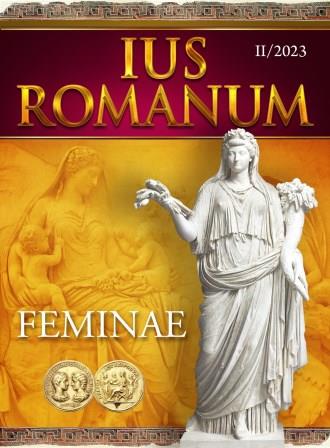PROSTITUTION IN THE CONTEXT OF ROMAN CRIMINAL LAW
PROSTITUTION IN THE CONTEXT OF ROMAN CRIMINAL LAW
Author(s): Ivana Jaramaz ReskušićSubject(s): Law, Constitution, Jurisprudence, History of Law, Civil Law, Law on Economics, EU-Legislation, Roman law
Published by: Софийски университет »Св. Климент Охридски«
Keywords: Roman criminal law; prostitution; Lex Iulia de adulteriis coercendis; adulterium; stuprum; criminal immunity; lenocinium; infamia
Summary/Abstract: In this paper it will be shown that criminal legal position of prostitutes and pimps was the reflection of Roman policy concerning sexual as public morality. It was based, on the one hand, on the concept of honor-infamy as the framework of matrimonium iustum and, on the other hand, on the infamous but tolerable prostitution as a form of legal sexuality. Therefore, according to Augustus' lex Iulia de adulteriis coercendis prostitutes were explicitly excluded from punishment for adulterium and stuprum, by which their profession was confirmed as allowed, but at the same time, due to the infamy their position in the society was permanently marginalized. On the other hand, by this law the notion of the punishable lenocinium was established and only the husband who did not accuse his wife of her infidelity was, according to regulations of this law, considered as a pimp. Although pimping in the postclassical law was configurated as a criminal offense per se with innovatively stricter punishment, ambivalent legal position of prostitutes was retained. What is more, their profession not only remained allowed, if not also legal, trade with the aim of controlling men's sexual activities but since Caligula it became subject to taxation, precisely structured and very lucrative.
Journal: IUS ROMANUM
- Issue Year: 2023
- Issue No: 2
- Page Range: 218-236
- Page Count: 19
- Language: English

